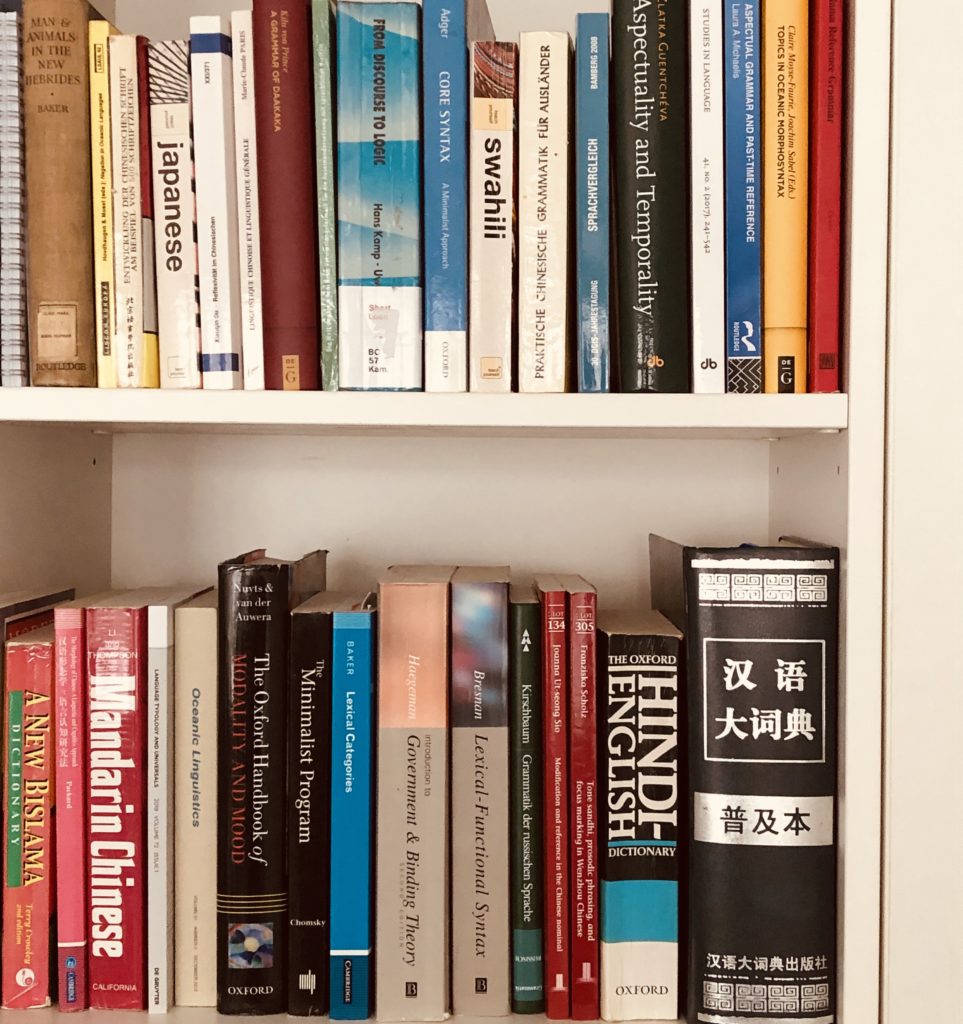
Turns out, not that many. I’m moving offices from HU to ZAS right now, and it will take a few more trips through Berlin Mitte before the handsome shelves of my new office are filled. I’ll post more about my new position and rewrite my landing page as soon as I’ve figured out who I am right now, so watch this space.

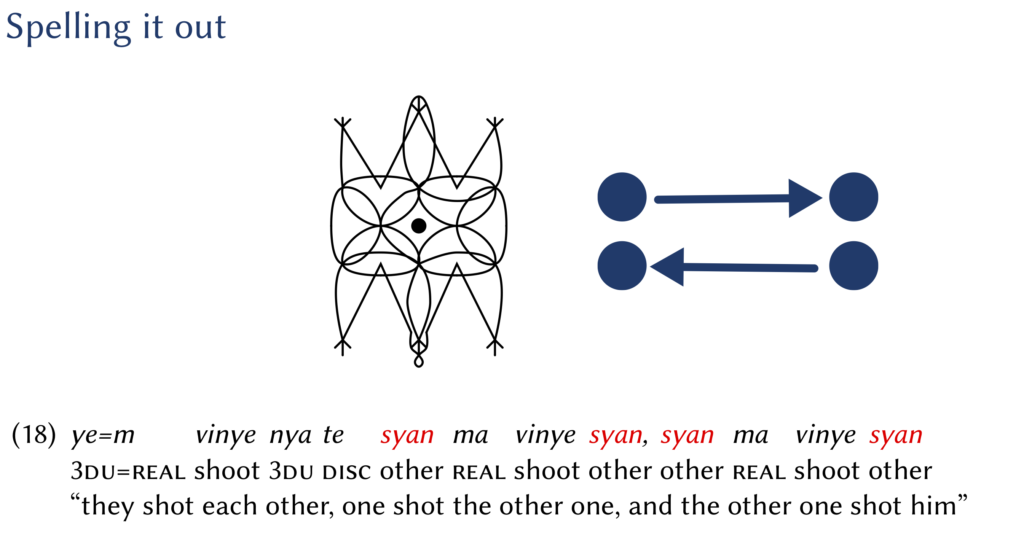

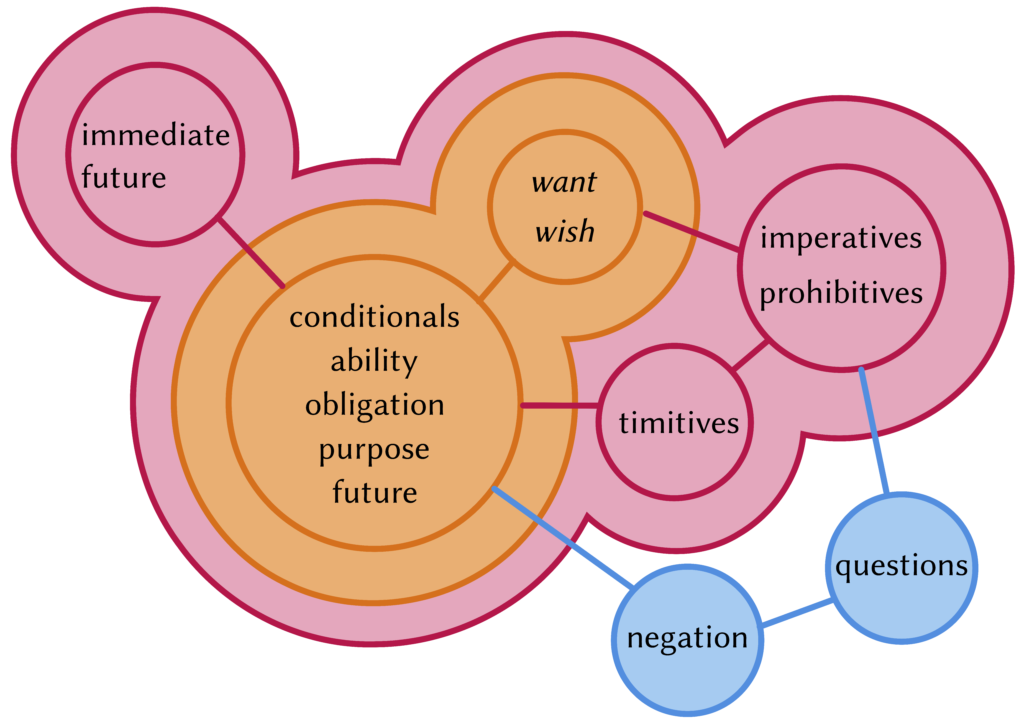
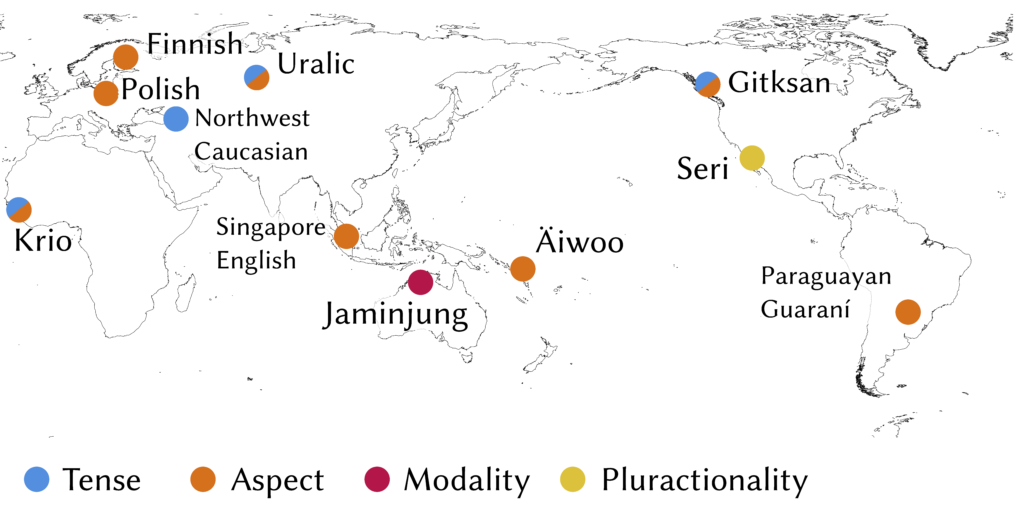
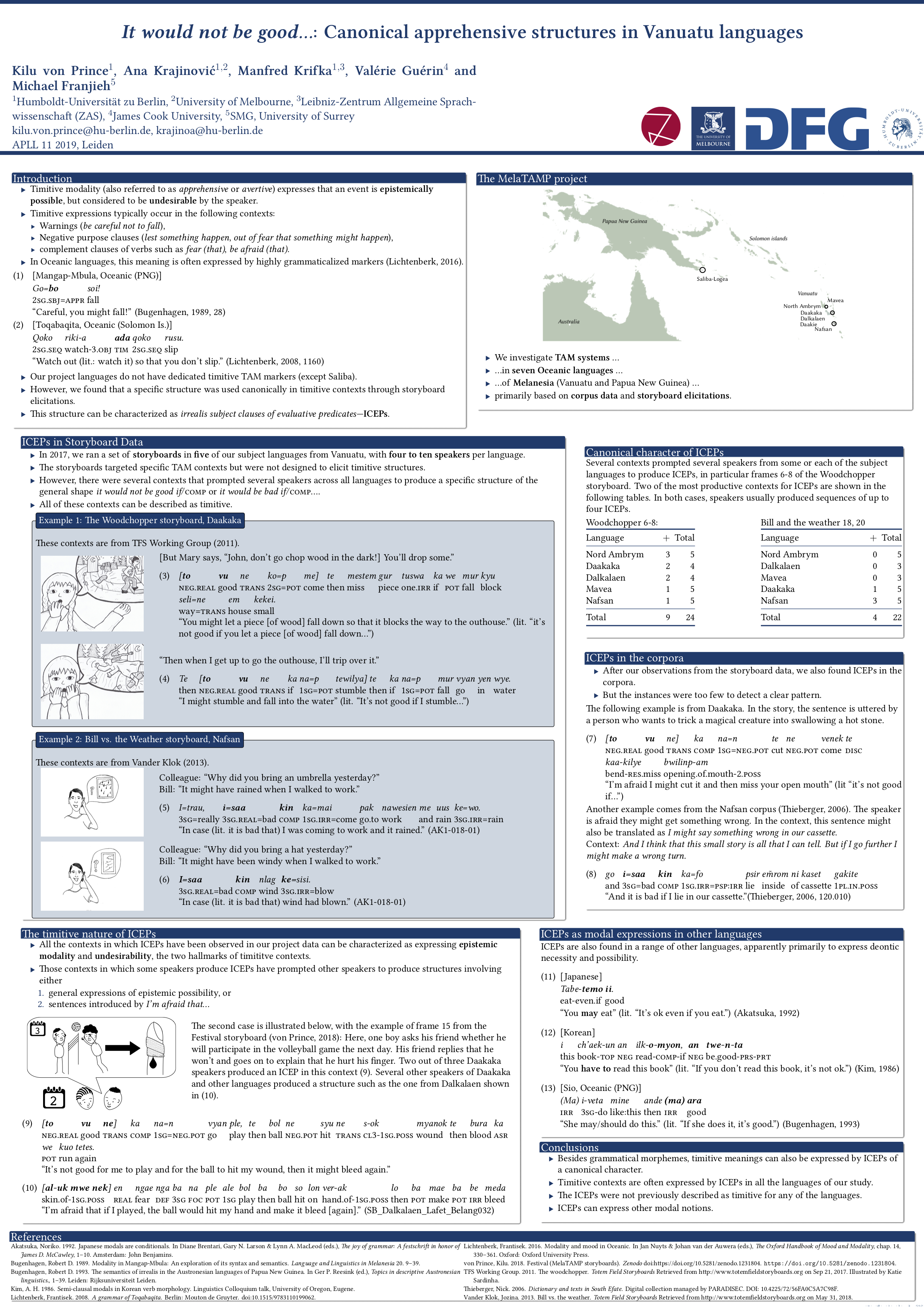 My colleagues Ana Krajinović and Manfred Krifka are currently at APLL in Leiden to present our joint work on timitive structures in Oceanic, which have the shape it’s not good/it’s bad if… . Timitive modality is a category often found in Oceanic, which typically occurs in warnings (Watch out, you might fall!) or negative purpose clauses (You should take an umbrella, lest you get wet!). Download the poster
My colleagues Ana Krajinović and Manfred Krifka are currently at APLL in Leiden to present our joint work on timitive structures in Oceanic, which have the shape it’s not good/it’s bad if… . Timitive modality is a category often found in Oceanic, which typically occurs in warnings (Watch out, you might fall!) or negative purpose clauses (You should take an umbrella, lest you get wet!). Download the poster 
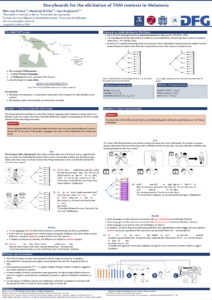
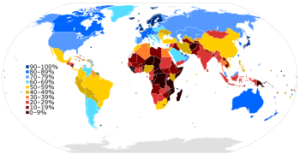 My colleague
My colleague